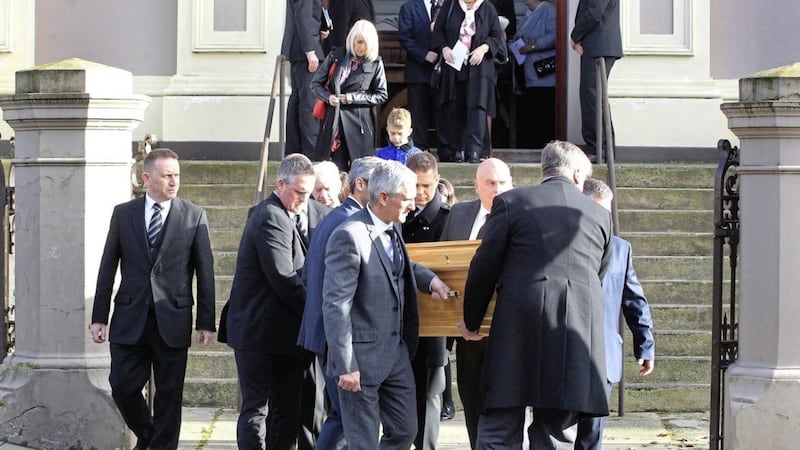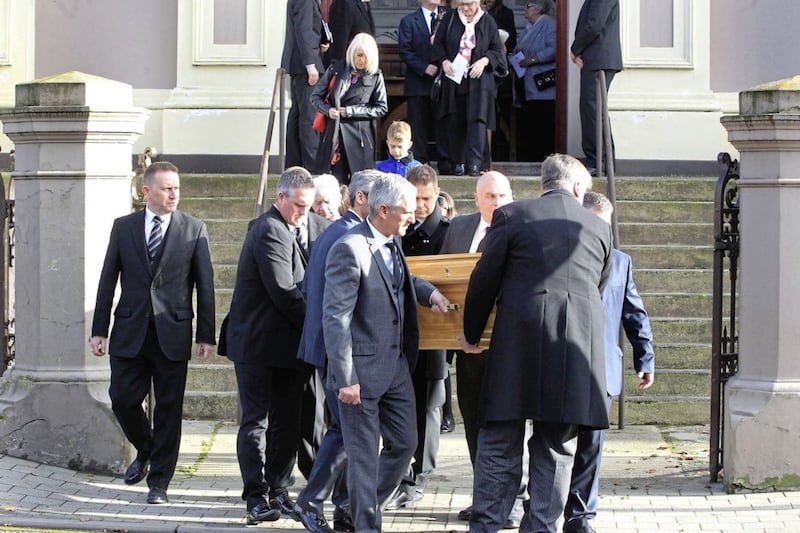UDA commander turned peacemaker Glen Barr’s desire to help people brought him into politics, a clergyman told his funeral.
Several hundred people attended the service in Derry yesterday following Mr Barr's death aged 75 on Tuesday.
A leading figure in the UDA in the early 1970s, he helped bring down the north’s first power-sharing executive through his leadership of the Ulster Workers’ Council strike.
However, in later years he dedicated himself to reconciliation.
In 1998, he was instrumental, along with former Fine Gael junior minister Paddy Harte, in developing the Irish Peace Park in Belgium in memory of Irish soldiers who fell in World War I.
The politician's son, Paddy Harte jnr, was among the mourners at Ebrington Presbyterian Church representing all aspects of his life.
DUP politicians included East Derry MP Gregory Campbell, Foyle assembly member Gary Middleton and former assembly speaker Lord Hay.
Ulster Unionist Party members included councillor Derek Hussey, while Derry SDLP councillor Gus Hastings also attended. Former SDLP MP Mark Durkan tweeted that he was unable to attend because he was in Colombia.
Mourners also included leading loyalist Jackie McDonald, former Policing Board deputy chairman Denis Bradley and former International Fund for Ireland chairman William McCarter, while the Catholic Church was formally represented by Derry priest Fr Michael Canny.
Ebrington minister Paul Linkens told them that following a number of jobs, Mr Barr started work at Derry’s Coolkeeragh power station where he became involved in trade union politics.
“Within this position he found that he was able to make a real difference to people’s lives as he sought to help the men with challenges and difficulties they faced," he said.
“It was that desire to help and represent the working class that motivated Glen into the political realm."
Rev Linkens said that as a “trusted voice” Mr Barr was elected to the Northern Assembly in 1973 and later the Northern Ireland Convention.
“He saw the working-class unionist voice being ignored and sought with his energy and determination to address the inequality.”
He added that through his establishment of the Maydown Ebrington training group, he sought to teach unemployed youths from all religious and political backgrounds.
This eventually led to his involvement in various peace initiatives including the Irish Peace Park.
“Glen did what he did because he believed it was the right thing to do,” Rev Linkens said.
Mr Barr was buried at Derry’s Altnagelvin cemetery.



